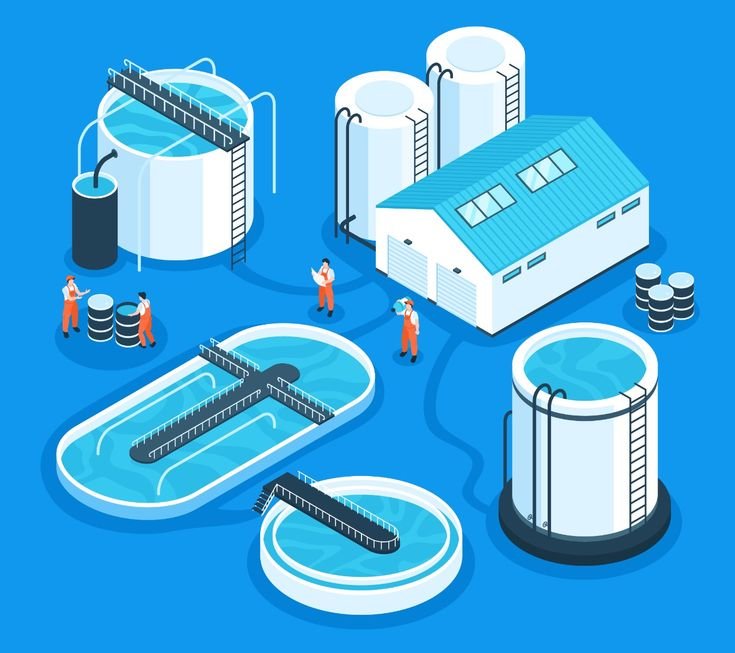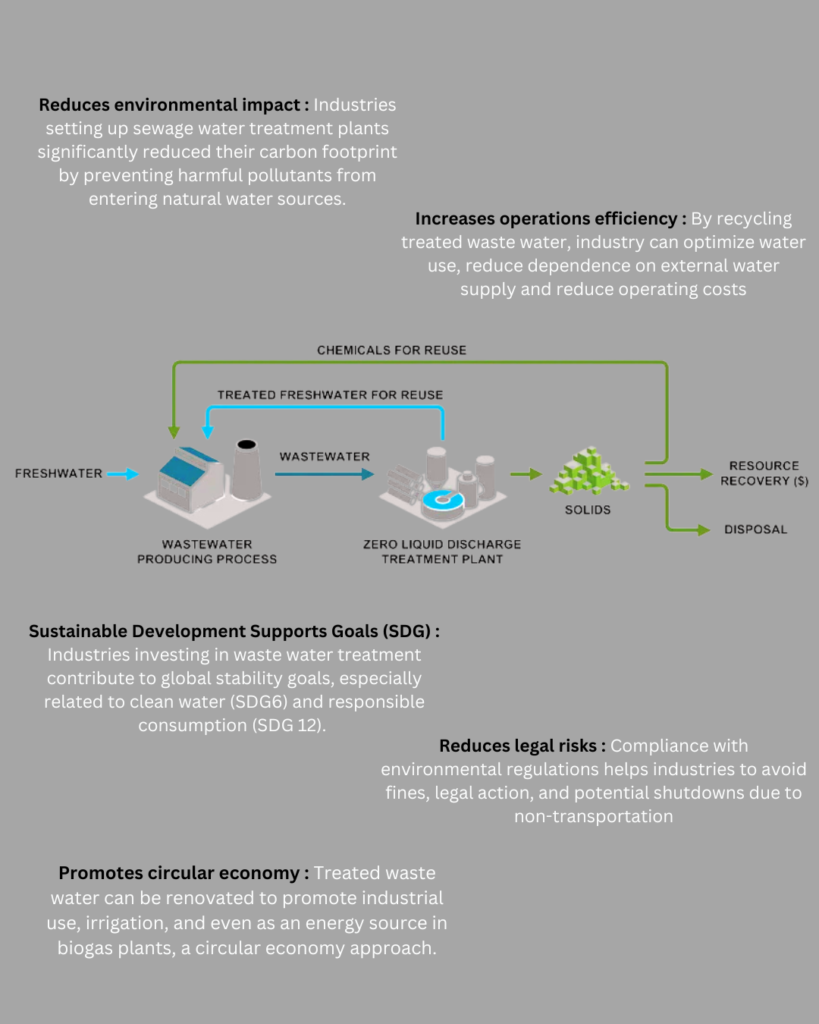
Water is one of the most important resources for industrial operations, yet it is one of the most polluted due to waste water discharge.. With rising environmental concerns and stringent rules, industries should adopt permanent waste water management practices. One of the most effective ways to achieve this is sewage water treatment plants (STP). These plant industries help industries manage waste, reduce pollution and promote water reuse.
Increasing requirement of business sewage treatment :
•Predominant reasons: Industries produce big quantities of waste water with toxic chemical substances, heavy metals and organic pollution. If left untreated, this waste water can lead to severe environment and fitness issues.
•Regulatory Compliance: Governments round the arena have strict environmental legal guidelines that want industries to deal with waste water earlier than disposal. Non-transportation can result in heavy fines and criminal movement.
•Water conservation: Treated waste water may be reused for industrial approaches, cooling systems and landscaping, in order that freshwater dependence can be decreased.
•Environmental Protection: Proper sewage treatment prevents infection of herbal water bodies, preserves environment and biodiversity.
•Cost Savings: Skilled waste water treatment reduces the price associated with the acquisition of raw water and waste water disposal.
•Corporate Social Responsibility (CSR): Adopting permanent waste water management increases the reputation of an enterprise and shows commitment to the environment.
How sewage water treatment plants work :
Industrial sewage water treatment plants appoint various procedures to remove contaminants and make waste water safe for disposal or reuse.
Major treatment stages include:
1.Preliminary treatment : Removing large debris and solids through screening and sedimentation. Oil and oil separation to prevent clogging and operational disabilities.
2.First aid : Settlement tanks allow heavy particles to settle, suspended solids and organic materials to reduce.
3.Secondary treatment : Biological remedies using bacteria and microorganisms to break organic waste. Common methods include active mud process (ASP), moving bed biofilm reactor (MBBR), and Mambrain Biorean (MBR).
4.Tertiary treatment : Advanced filtration methods such as reverse osmosis, UV disinfection and chemical remedies to remove the remaining pollutants. Ensures that the water is safe for reuse or discharge according to regulatory standards.
Benefits of sewage water treatment for industries :
•Reduces environmental impact : Industries setting up sewage water treatment plants significantly reduced their carbon footprint by preventing harmful pollutants from entering natural water sources.
•Increases operations efficiency : By recycling treated waste water, industry can optimize water use, reduce dependence on external water supply and reduce operating costs.
•Reduces legal risks : Compliance with environmental regulations helps industries to avoid fines, legal action, and potential shutdowns due to non-transportation.
•Sustainable Development Supports Goals (SDG) : Industries investing in waste water treatment contribute to global stability goals, especially related to clean water (SDG6) and responsible consumption (SDG 12).
•Promotes circular economy : Treated waste water can be renovated to promote industrial use, irrigation, and even as an energy source in biogas plants, a circular economy approach.

Sewage treatment plants :
1.Manufacturing industry
Factories produce large versions of waste water with chemical contaminants. STPs help treat and recycle water for re -use.
2.Food and beverage industry
Wastewater from food processing includes organic matter and fat, which requires special treatment before discharge or reuse.
3.pharmaceutical industry
Pharmaceutical plants discharge toxic chemical residues, which require advanced treatment to prevent environmental damage.
4.textile industry
Textiles produce dye-laden waste water, which should be treated to remove harmful colors and chemicals.
5.Oil and gas industry
Oil refineries produce waste water with high level of hydrocarbons, requiring treatment to prevent soil and water contamination.
Sewage water treatment plants are required for industries for the purpose of obtaining sustainable waste management. They help industries follow rules, protect the environment, conserve water and promote responsible business practices. With progress in waste water treatment technologies, industry can adopt cost -effective and efficient solutions to effectively manage waste water. Investing in sewage water treatment is not just a regulatory requirement, but a strategic step towards stability and long -term operational success.
